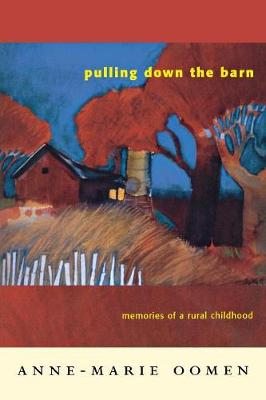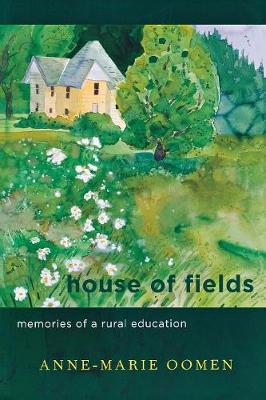Great Lakes Books
2 total works
Pulling Down the Barn eloquently recalls author Anne-Marie Oomen's personal journey as she discovers herself an outsider on her family farm located in western Michigan's Oceana County, in the township of Elbridge - a couple hundred acres in the middle of rural America. Written as a series of heartfelt interlocking narratives, this collection of essays portrays the realities of farm life: haying, picking asparagus and cherries, the machinery of tractors and pickers, but each chapter also touches upon the more ethereal and rarely articulated: the stoic love that permeates a family, the farmer's struggle with identity, the unspoken patriarchy of land passed on to sons (often at the expense of daughters), and the way land can shape a childhood. With its rich language and style, Pulling Down the Barn engrosses the reader in Oomen's memories - setting beauty and wonder against work and loss - and paints a poignant portrait of growing up in rural Michigan.
Anne-Marie Oomen uses a wealth of vivid language and personal details to bring scenes from her childhood on a family farm to life in ""House of Fields"". Yet, the focus of this book shifts away from the daily activities of the farm, which Oomen presented in ""Pulling Down the Barn"", to life outside its boundaries, as she explores the complex meaning of ""education"" in all of its rural forms. From reading lessons to shattered windows, from dynamite to first kisses, from lost underwear to confirmation names, these stories depict the spiritual and emotional journey of being educated by family, fields, and church - as well as by traditional schools. Oomen's description of the farmhouse where she grew up becomes the central image for this collection of essays. This once-grand home, filled with memories and the physical wear of family life, is the soul of her family's farm, and its sense of nurturing and protection is reflected in the author's relationships to her mother, her teachers, and her mentors. Within this context, Oomen examines memories from her formal education, which began during the final years of the one-room school era then shifted to the ""consolidated"" schools of the late 1950s and 1960s and to a parochial school system. Struggles with reading, first friendships, early loves, and contradictory educational models are coupled with the challenges of coming of age and the ups and downs of an emotional education between mother and daughter. Fans and teachers of creative nonfiction, as well as anyone with roots in a rural community, will enjoy this lyrical and revealing volume.

